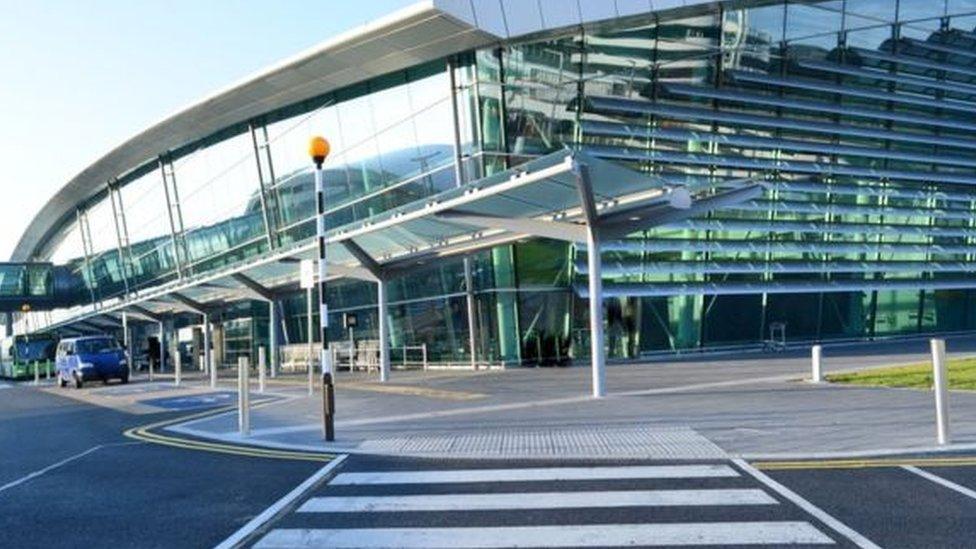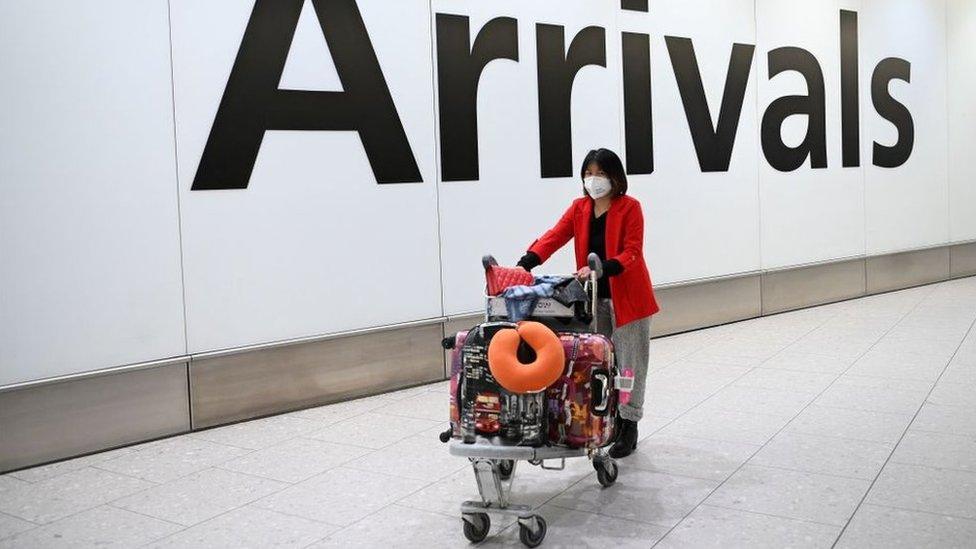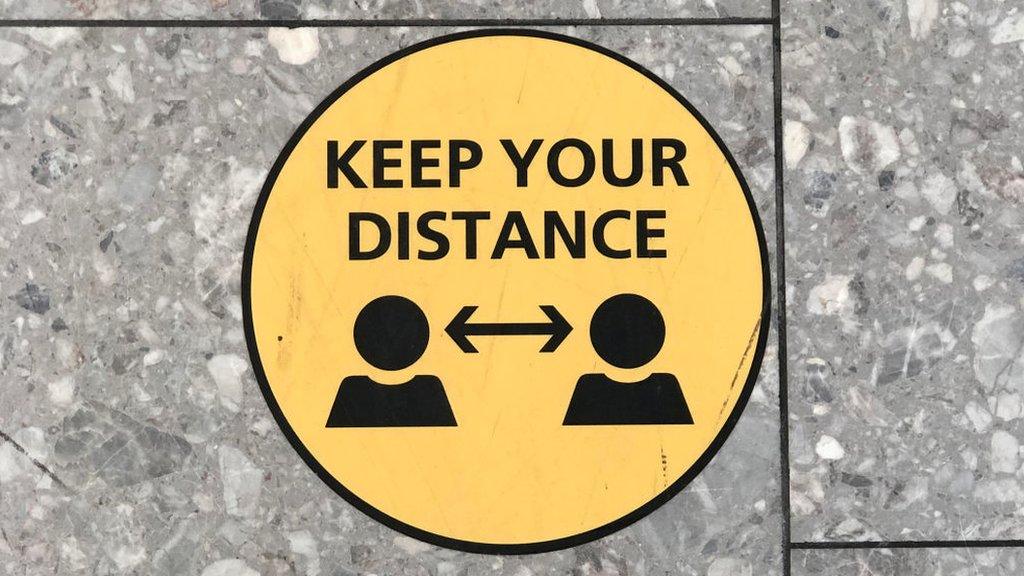Coronavirus: Republic introduces new measures for passengers
- Published

The Irish government has made it mandatory for all travellers arriving in Ireland to provide an address to police.
All passengers arriving into the Republic of Ireland are to be legally required to complete a passenger locator form.
From next week, the Irish government is making it mandatory for all travellers arriving in Ireland to provide an address to police.
The regulations will be in force from Thursday 28 May until 18 June, when they will be reviewed.
The plan does not affect cross-border travel from Northern Ireland.
The Irish government continues to advise Irish citizens and residents against all non-essential international travel, and passengers arriving into Ireland from overseas are asked to self-isolate for 14 days.
The form will need to be partially completed by people arriving in Ireland from overseas for onward travel to Northern Ireland.
Minister for Health Simon Harris said: "These are extraordinary measures but they are necessary in a time of a public health crisis.
"We continue to advise everyone against non-essential travel.
"However, if a person does arrive into Ireland, they will legally obliged to fill out this form, regardless of their nationality."
The restriction will apply to all those arriving into the country at ports and airports.
It will be an offence not to fill in a passenger location form.

Analysis: Shane Harrison, BBC News NI Dublin correspondent
The Irish government's decision to make the completion of passenger forms mandatory was inevitable after it became clear a third of those being asked to fill in forms at Dublin Airport had refused to do so.
With the Republic's lockdown restrictions easing and its number of coronavirus cases falling, authorities want to minimise new cases in what they fear will be an inevitable second wave of the virus.
But there are complications: How can Dublin enforce the 14-day isolation on people travelling to Northern Ireland? And will the authorities north of the border, where the self-isolation period can be seven days, co-operate?
Because of a flaw in the Irish government's emergency legislation, people from Northern Ireland cannot be made to comply with the Republic's Covid-19 travel restrictions.
So is there not an incentive for people from the rest of the UK who want to travel to the Republic do so via Northern Ireland?
Garda (Irish police) Commissioner Drew Harris has said people from Northern Ireland have largely respected the laws south of the border.
Indeed there is evidence people in tourist-friendly areas don't want visitors until the government allows.
The authorities' hope must be that this sense of good citizenship north and south will prevail - especially in a battle against a virus that doesn't recognise borders.

The UK government has announced that people arriving in the UK must self-isolate for 14 days from 8 June to help slow the spread of coronavirus.
Travellers will need to tell the government where they will quarantine, with enforcement through random spot checks and £1,000 fines in England.
Home Secretary Priti Patel said the measure would "reduce the risk of cases crossing our border".
Lorry drivers, seasonal farm workers, and coronavirus medics will be exempt.
The requirement will also not apply to those travelling from the Republic of Ireland, the Channel Islands and the Isle of Man.
The UK announced new quarantine rules today. Exemptions for road hauliers and medical officials will apply, while the common travel area with Ireland will be unaffected.
Travellers will face spot checks and £1,000 fines if they fail to self-isolate for 14 days after arriving in the UK under measures to guard against a second wave of coronavirus.


TRAVEL: Can I get a holiday refund?
FACE MASKS: Should I be wearing one?
LOOK-UP TOOL: How many cases in your area?
GLOBAL SPREAD: Tracking the pandemic
A SIMPLE GUIDE: What are the symptoms?

- Published9 May 2020

- Published11 February 2022

- Published16 May 2020

- Published3 May 2020
